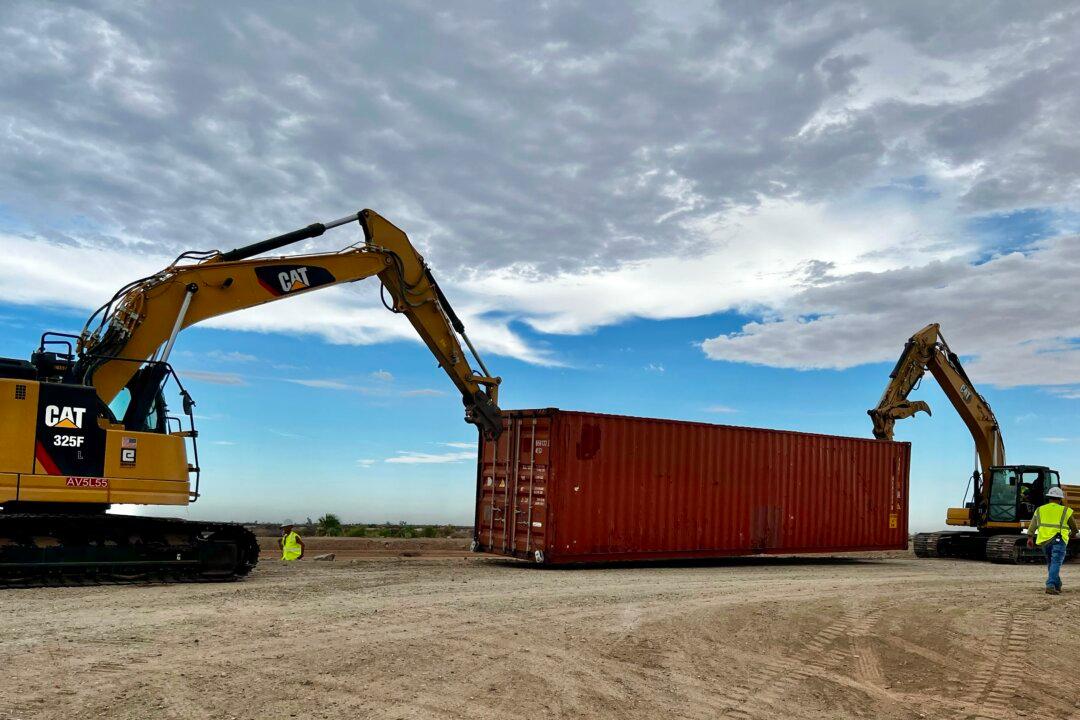Arizona Gov. Doug Ducey has ordered 60 double-stacked shipping containers to be placed in border fence gaps near Yuma, the state’s busiest illegal border crossing area.
The containers will be reinforced with concertina wire at the top, according to the governor, who issued an executive order for the work to begin on Aug. 12.





